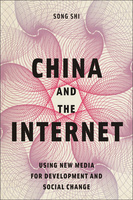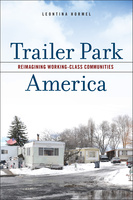
Bold Ideas, Essential Reading since 1936.
Rutgers University Press is dedicated to the advancement and dissemination of knowledge for a wide range of readers. The Press reflects and extends the University’s core mission of research, instruction, and service. They enhance the work of their authors through exceptional publications that shape critical issues, spark debate, and enrich teaching. Core subjects include: film and media studies, sociology, anthropology, education, history, health, history of medicine, human rights, urban studies, criminal justice, Jewish studies, American studies, women's, gender, and sexuality studies, LGBTQ, Latino/a, Asian and African studies, as well as books about New York, New Jersey, and the region.
Rutgers also distributes books published by Bucknell University Press.
There She Goes Again
Gender, Power, and Knowledge in Contemporary Film and Television Franchises
The Farm & Wilderness Summer Camps
Progressive Ideals in the Twentieth Century
Not Alone
LGB Teachers Organizations from 1970 to 1985
China and the Internet
Using New Media for Development and Social Change
China and the Internet analyzes how Chinese activists, NGOs, and government offices have used the Internet to fight rural malnutrition, the digital divide, the COVID-19 pandemic, and other urgent problems affecting millions of people. It presents five theoretically-informed case studies of how new media have been used in interventions for development and social change, including how activists battled against COVID-19.
Between Care and Criminality
Marriage, Citizenship, and Family in Australian Social Welfare
When Cowboys Come Home
Veterans, Authenticity, and Manhood in Post–World War II America
When Cowboys Come Home shows how World War II changed the ways men thought about their roles in American society. For three writers who served—James Jones, Stewart Stern, and Edward Field—the war taught that manhood didn’t have to be based on bravery and heroism, but could be defined by authenticity, sensitivity, and male camaraderie. Rebelling against the orthodoxies of their time, these veterans reimagined what roles a man could play and their work set the foundation for the revolutions of the sixties.









